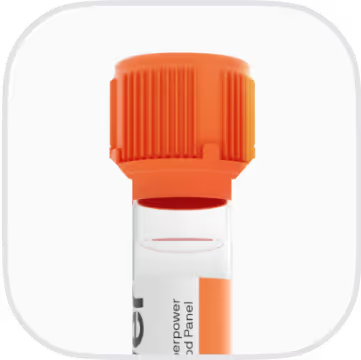What are GH Deficiency biomarkers
GH deficiency biomarkers are blood signals that show how well the body’s growth-hormone system is working. Growth hormone (GH, somatotropin) is released from the anterior pituitary (somatotrophs) in short bursts and vanishes quickly, so a single GH level rarely captures the true picture. Instead, testing focuses on the steadier messengers made in response to GH—mainly insulin-like growth factor 1 (IGF‑1) and its carrier protein IGF‑binding protein‑3 (IGFBP‑3), produced largely by the liver (hepatocytes) with support from the acid‑labile subunit (ALS). These downstream markers integrate GH activity over time, acting as a durable readout of the somatotropic axis. Measuring them helps determine whether growth signaling to bones, muscles, and metabolism is adequate, establishes an objective baseline, and tracks how the system responds over time to treatment. Together, they translate the fleeting GH pulse into a stable biological story—how effectively the pituitary’s signal is being generated, transported, and received across the body.
Why is blood testing for GH Deficiency important?
- Screen for growth hormone deficiency using IGF-1, your stable GH activity marker.
- Spot low IGF-1 that signals insufficient GH production from the pituitary gland.
- Clarify causes of fatigue, low strength, increased fat, or slow growth in children.
- Protect fertility by flagging pituitary issues that disrupt periods, ovulation, or testosterone.
- Guide GH therapy dosing by targeting age- and sex-adjusted IGF-1 ranges.
- Track long-term GH status; IGF-1 reflects average GH over days, not minutes.
- Explain factors that skew IGF-1, like obesity, malnutrition, thyroid disease, liver disease, or diabetes.
- Interpret results alongside GH stimulation tests, symptoms, and age-specific reference ranges.
What insights will I get?
Growth hormone (GH) deficiency blood testing provides insight into how well your body supports growth, tissue repair, metabolism, and overall vitality. GH is a key hormone that influences energy levels, muscle and bone strength, cardiovascular health, cognitive function, and immune resilience. At Superpower, we assess GH status by measuring a specific biomarker: IGF-1.
IGF-1, or insulin-like growth factor 1, is a protein produced mainly in the liver in response to GH stimulation. Because GH itself is released in pulses and can be difficult to measure directly, IGF-1 serves as a stable indicator of average GH activity over time. Low IGF-1 levels can suggest GH deficiency, while normal or high levels generally indicate adequate GH function.
A healthy IGF-1 level reflects the body’s ability to maintain stable growth, repair tissues, and regulate metabolism. When IGF-1 is within the expected range for age and sex, it supports the body’s capacity for cellular renewal, muscle maintenance, and metabolic balance. In the context of GH deficiency, low IGF-1 may signal reduced anabolic (building) processes and can be associated with symptoms like fatigue, decreased muscle mass, and changes in body composition.
It’s important to note that IGF-1 levels naturally decline with age and can be influenced by factors such as acute illness, chronic disease, pregnancy, nutritional status, and certain medications. Laboratory methods and reference ranges may also vary, so results are best interpreted in context.







.avif)



.svg)





.svg)


.svg)


.svg)

.avif)
.svg)










.avif)
.avif)
.avif)


.avif)
.avif)




.svg)




.avif)


